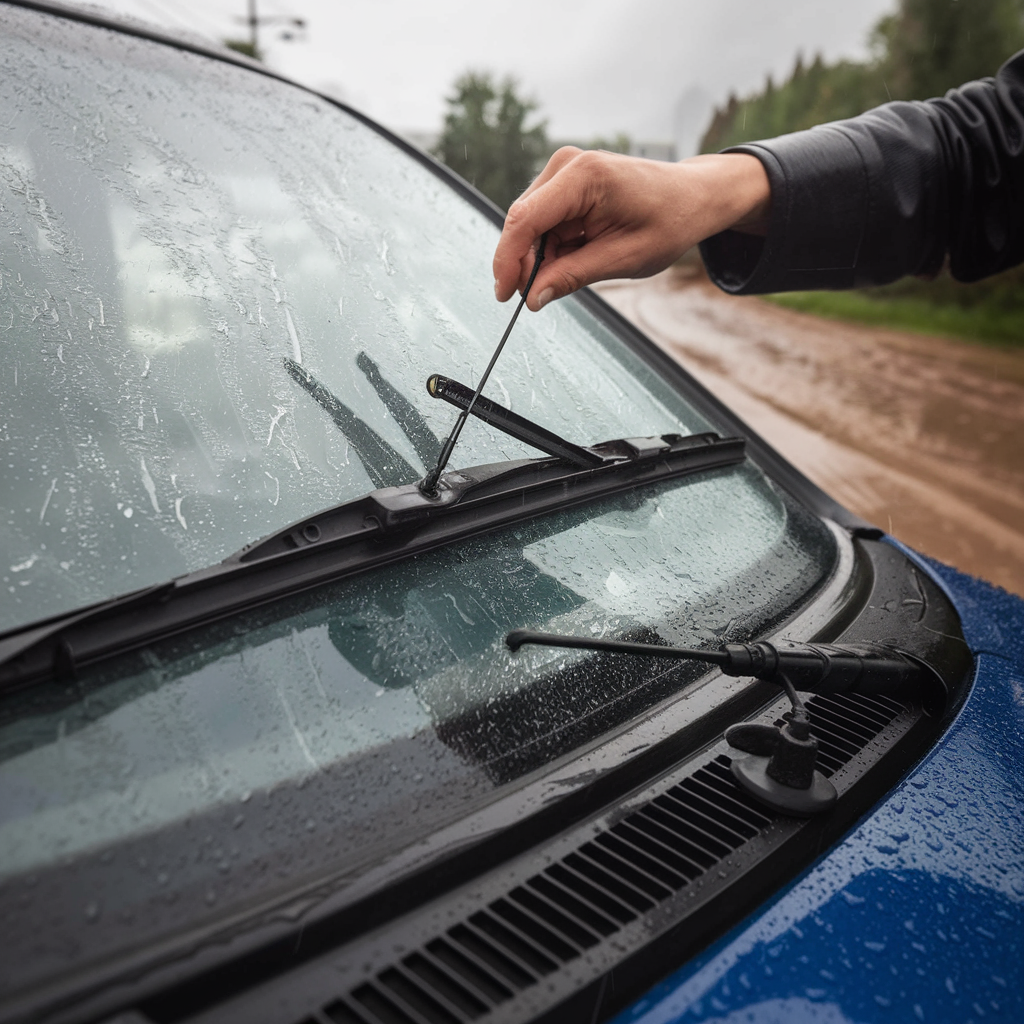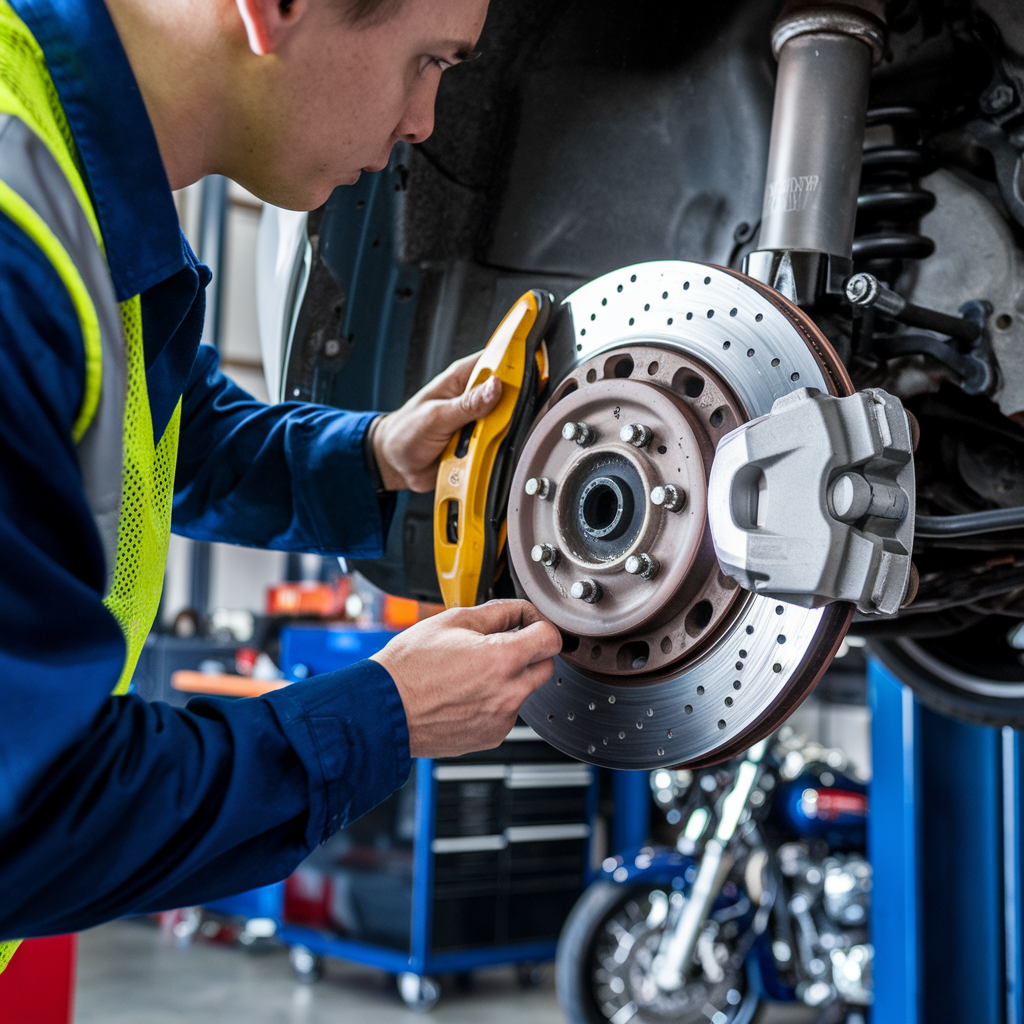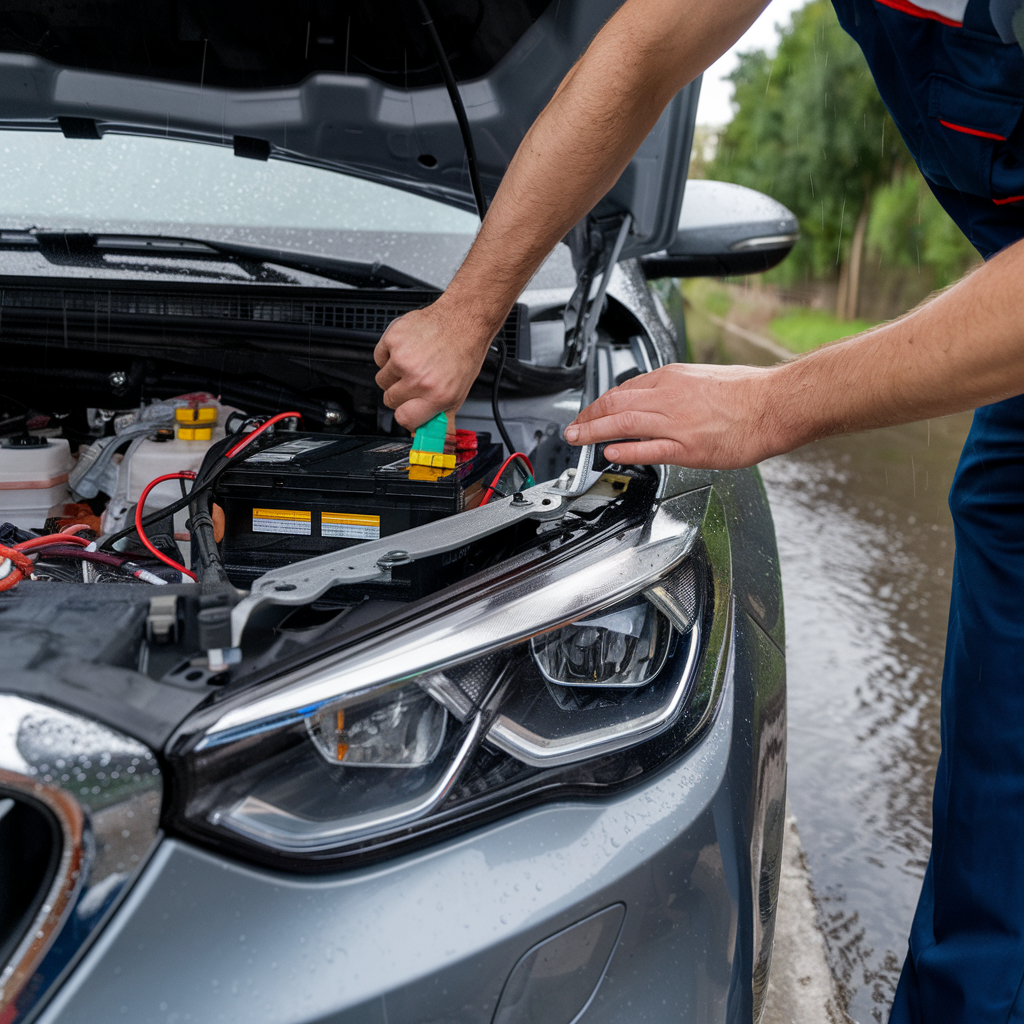They said that during rainy season in Townsville, owners of vehicles, especially those that are used off-road are inconvenienced by some aspects. You can predict an opportunity to have rain and allergies most likely at this time which means your car should be ready for the rainy season. From just going for a drive on a flooded road to driving in simple rainy weather a well-maintained car means you are safe and comfortable.
This guide provides useful tips for getting your car ready for the rainy season in Townsville. It covers safety checks, essential tasks, and what to inspect during rain. Remember, a well-prepared car can help you avoid breakdowns or accidents during wet conditions.
1. Check and Replace Your Wipers

Wipers are among those parts of your vehicle that always come in handy when driving particularly on rainy days. If wipers in your car are old or their blades are worn out they cannot do a proper job of wiping the rain off the windshield, hence can lead to a dangerous accident.
What to Do:
- Inspect Wiper Blades: The best time to clean your wipers is when you are replacing your blades; you should look for any tears, cracks, brittle, or rubbing signs. In case they leave streaks or do not wipe the windshield properly then they are due for replacement.
- Ensure Proper Wiper Fluid: Guarantee that you have enough fluids in the windshield washer. Mud, dirt, and salt also mostly come along with the wet season and this makes the windshield to be cleaned often.
- Test Wipers Before Heavy Rain: You should wash your windshield wipers in intermittent rain to be certain they are ok before the heavy downpour. Never take your car for a ride in the rain only to discover the wipers have failed when it begins to rain.
2. Inspect Your Tires for Wear and Tear
Driving cars or other vehicles on wet or flooded roads maximizes the danger of hydroplaning, a scenario in which the tires of a vehicle fully lose contact with the road. Having the right tire condition and pressure can help to avoid this.
What to Do:
- Check Tire Tread Depth: This is one of the very first things any driver should do because tire tread depth is one thing that determines how the car will stick to the road surface while it’s moving. Measure the tread and replace your tires if they are worn out, especially before the wet season hits.
- Monitor Tire Pressure: The ability for a tire to effectively perform during slippery and rainy weather can be enhanced with the right amount of tire pressure. Low tire pressure increases the chances of slipping since the tire will not fully plant on the road. Correct tire pressure can always be found in the vehicle’s manual or the tire information label.
- Rotate Tires Regularly: Altering the position of the tires can make a significant difference to how the tires wear out and the ability of the car during handling. Rotate your tires regularly to improve vehicle performance and enhance consistent wear patterns.
3. Ensure Your Brakes Are in Good Condition

Properly functioning brakes are essential when driving on flooded streets. They provide control over the vehicle and allow you to stop safely when needed. A poorly maintained braking system can worsen the risks in wet conditions. This makes it crucial to address any brake issues before the rainy season begins.
What to Do:
- Check Brake Pads and Rotors: Examine the brake pads for excessive wear. Pads that are too thin will lower the effectiveness of braking, and damaged rotors can increase the distance that must be covered to come to a stop.
- Test Brakes Regularly: Go for a drive on a brake test vehicle and ensure everything is okay and that the brakes function normally. In particular, pay attention to the feel of the brake pedal. If it is soft or spongy, there may be a problem with brake fluid or air in the brake lines.
- Flush Brake Fluid: Brake fluid can get dirty with time. Get it flushed out and replaced with clean brake fluid for the best performance during the rainy season.
4. Inspect and Protect the Car’s Electrical System

Heavy rains and floods can damage your car’s electrical system. The lights, battery, and battery wiring can also be affected. With the right electrical maintenance, faulty lights or a dead battery can be avoided.
What to Do:
- Battery Inspection: Battery terminals must be cleaned to avoid corrosion. If the battery is old or weak, then it is best to change it up before the wet season.
- Lights and Signals Check: Your car lights must all be checked including the headlights, brake lights, turn signals, and hazard lights. Burnt-out bulbs must be replaced.
- Fuses and Wires Check: Wires that are exposed or frayed must be checked to ensure water will not get inside. Any damage done to the car’s electrical wiring must be repaired.
5. Seal Doors and Windows
Profuse rain during rainy season in Townsville can enable water to enter your automobile if the seals around the doors, windows, and sunroof are damaged. Ingress of water can trigger mold development, electrical failure, and even rust within the car.
What to Do:
- Evaluate the Rubber Seals: Rubber seals on your windows and door should be evaluated for cracks or other forms of damage. If they are found to be deteriorating, bring in new seals to avoid leaks.
- Examine Sunroof Drainage: If there is a sunroof, the drainage tubes should be checked to see if they are blocked. Blocked tubes can cause the water to flow into the car’s interior rather than away from it.
- Avoid opening doors and windows: Doors and windows should always be shut tightly before driving through heavy rainfall so that water does not get inside.
Conclusion
Protecting yourself and your car is crucial if you live in Townsville. The wet season brings heavy rain and potential floods, which can affect your safety on the road. Preparing your vehicle for these conditions can help prevent breakdowns and accidents. Townsville’s tropical weather can impact how your car performs in the rain. To stay safe, regularly check your wipers, tires, brakes, and electrical systems. Maintaining your car is the best way to avoid problems during the rainy season. Stay proactive, and you can drive confidently even in wet weather.

